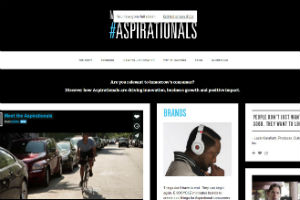Microsoft, Ford and Target are the top three brands in America most trusted to act responsibly. But, worldwide results tell a different story. The 2014 Aspirational Consumer Index, released by BBMG and GlobeScan, surveyed more than 20,000 consumers in 21 countries on six continents to find the most trusted companies.
Scoring high marks worldwide were Microsoft, Coca-Cola, Unilever and Nestle. Ford ranked number 3 in Canada in addition to the number two ranking in the United States, but did not appear anywhere else on the list. The U.S.’s number 3, Target, also did not rank anywhere else in the study. Microsoft came in at number 2 in South Korea and number one in Australia. Coca-Cola appeared on the list five times, more often than any of the 54 brands cited in the survey.
These brands “deliver exceptional products and services, inspire personal relationships, support community initiatives and protect the environment,” according to the study, and therefore “drive perceptions of responsibility.”
Along with the study, BBMG and GlobeScan launched the website TheAspirationals.com. The website aims to track the habits of so-called Aspirational consumers. Aspirationals make up about 38 percent of the survey’s respondents, and are as conscious of shopping and style as they are of corporate responsibility. They are driven by shopping for new things, and believe in sustainability and preserving the environment.
“Aspirationals are looking for companies they can believe in, and they want brands to stand for something bigger than a product or service,” said Raphael Bemporad, co-founder and chief strategy officer at BBMG, via a statement.
Aspirational consumers trust that companies will act in the best interests of society more than the average consumer, 50 percent versus 43 percent. They are environmentally conscious, believing in the need to consume less to preserve the earth for future generations at a rate of 95 percent, compared to 69 percent of all consumers.
Nine out of 10 are prepared to spend more on sustainable products, while only 62 percent of all consumers are willing to do so. And, Aspirationals are often advocates for brands they perceive as socially responsible, with 90 percent reporting they encourage others to buy from such brands, compared to 59 percent of all consumers.
These consumers are slightly more likely to be female than male (53 percent versus 47 percent), and slightly more likely to be a part Gen-Xers or Millennials than most consumers, at rates of 35 percent and 33 percent compared to 34 percent and 31 percent.
Of the 21 countries included in the study, India has the highest concentration at 58 percent of respondents, followed by South Korea, (53 percent), China (51 percent) and Turkey (48 percent). The percentage of respondents in the United States identified as Aspirational was slightly less than the study overall, at 34 percent compared to 38 percent.
“Aspirationals matter because they are the first to unite materialism, sustainability and cultural influence,” said Eric Whan, GlobeScan’s sustainability director in the statement. “As the largest consumer segment globally, they are the most critical audience to reach and engage if we want to reinvigorate brand loyalty and drive sustainable behavior change at scale.”
